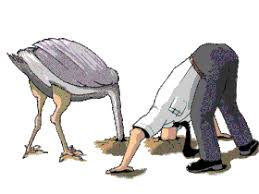 I’ve always liked making up words, but back in the day, long before social media, that was frowned upon. So now I use the word “frenemy” in relation to food because to me, that means food is both a friend and an enemy, and has been so for a very long time.
I’ve always liked making up words, but back in the day, long before social media, that was frowned upon. So now I use the word “frenemy” in relation to food because to me, that means food is both a friend and an enemy, and has been so for a very long time.
First, the friend part. We all need food to live (duh!), and to nourish our bodies and provide us with good health and enough energy to follow our dreams. And that’s the obvious and happy part of the friendship or partnership. But for myself, and countless other emotional, compulsive and/or binge eaters and food addicts, food took on another role.
When we were young, many of us were given special treats when we behaved well, and on special occasions like birthdays and holidays and when company came. We also got treats to comfort us when we were sad. (Don’t cry little girl … here’s some ice-cream to make you feel better!) That’s not so unusual.
However, those of us with a tendency to avoid our  emotions, learned to turn to food on a more frequent basis – to reward ourselves, console ourselves when things did not go our way, and banish our worries and fears. Soon, turning to food became a habit, which morphed into a need. Our bodies and minds started to use food as an all-purpose remedy for whatever ailed us. Food became our friend in need. Indeed.
emotions, learned to turn to food on a more frequent basis – to reward ourselves, console ourselves when things did not go our way, and banish our worries and fears. Soon, turning to food became a habit, which morphed into a need. Our bodies and minds started to use food as an all-purpose remedy for whatever ailed us. Food became our friend in need. Indeed.
ns w
As this friendship with food blossomed, so did the consequences — weight gain and/or obsession with weight gain and loss, and what we should and should not eat. Some of us turned to bulimic activities to lessen the impact of our food consumption. Others just got fat, then dieted, then got even fatter. But whether or not we experienced a weight gain from our over-reliance on food to solve (or avoid) problems, we also suffered from the shame.
The emotions we buried from overeating went unresolved, along with the accompanying negative thinking. At some point, we knew what we were doing wasn’t quite right, but we didn’t know how to fix it. And that enhanced the shame and the negative self-talk. So some of us avoided going out with friends and family, and preferred to stay alone and eat. Food eventually became our only friend – always there, no matter what. But this so-called friend had an enormous capacity to betray us.
 And that’s the enemy part. What started out as a great idea, a creative solution to the problem of difficult thoughts and feelings, ultimately became a secret shame. Some of us couldn’t stop eating once we started. Some of us unknowingly developed an addiction to certain foods. Some of us tried to figure out what was happening, and why we stuffed food into our mouths even when we didn’t want to. Many of us tried to control our eating: we went on various diets, and succeeded for a while – until eventually we lost control and headed back into the food, despite not wanting to.
And that’s the enemy part. What started out as a great idea, a creative solution to the problem of difficult thoughts and feelings, ultimately became a secret shame. Some of us couldn’t stop eating once we started. Some of us unknowingly developed an addiction to certain foods. Some of us tried to figure out what was happening, and why we stuffed food into our mouths even when we didn’t want to. Many of us tried to control our eating: we went on various diets, and succeeded for a while – until eventually we lost control and headed back into the food, despite not wanting to.
Our relationship with food grew into a love-hate relationship. We couldn’t live without it, or with it. Food became a frenemy. And the only way out … is complicated. If it was just a matter of putting down the food, we could do it. In fact, most of us have done it. Until we picked the food up again. If it was simply a matter of losing weight, we could also do that, as many of us have done, too many times to count.
We have a lot to learn and unlearn in order to change our love-hate relationship with food. If you’re reading this, welcome to the beginning of the beginning.
